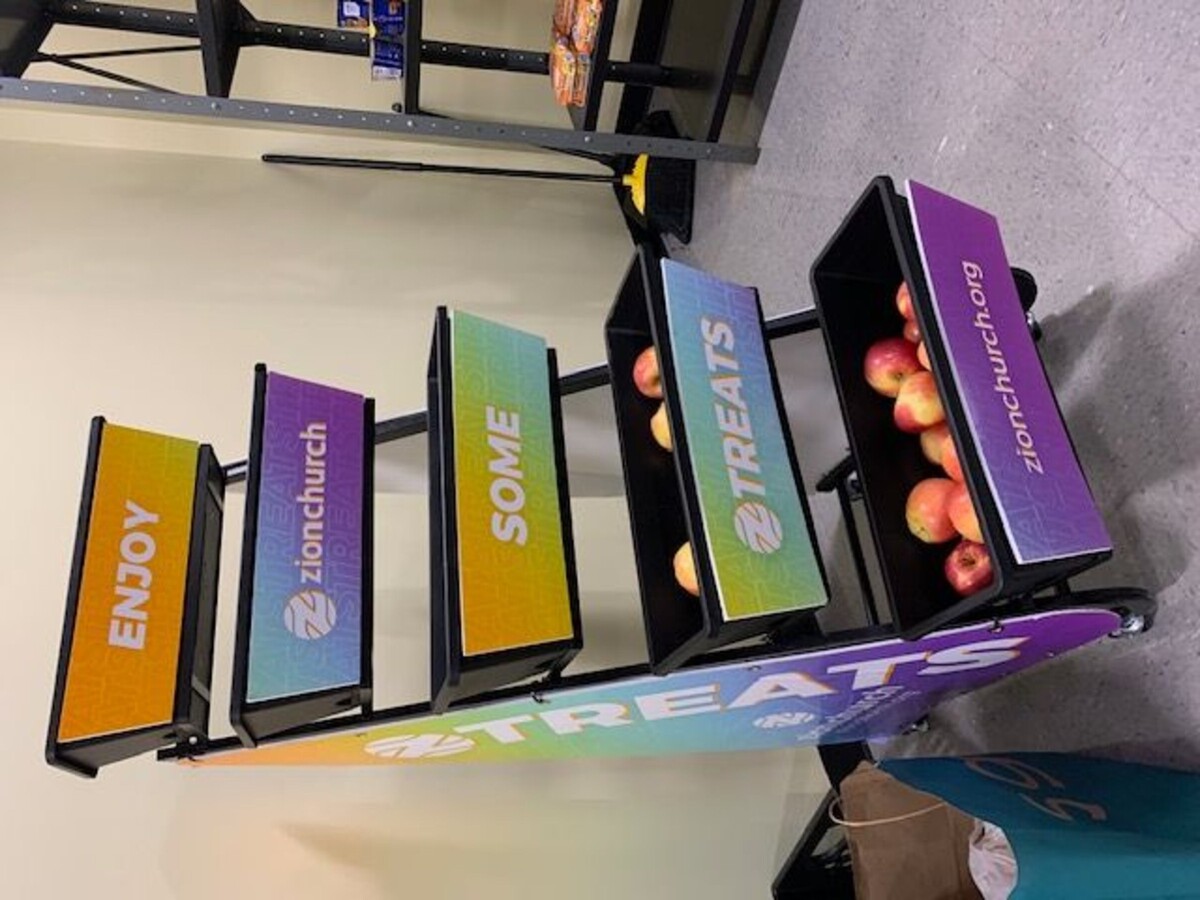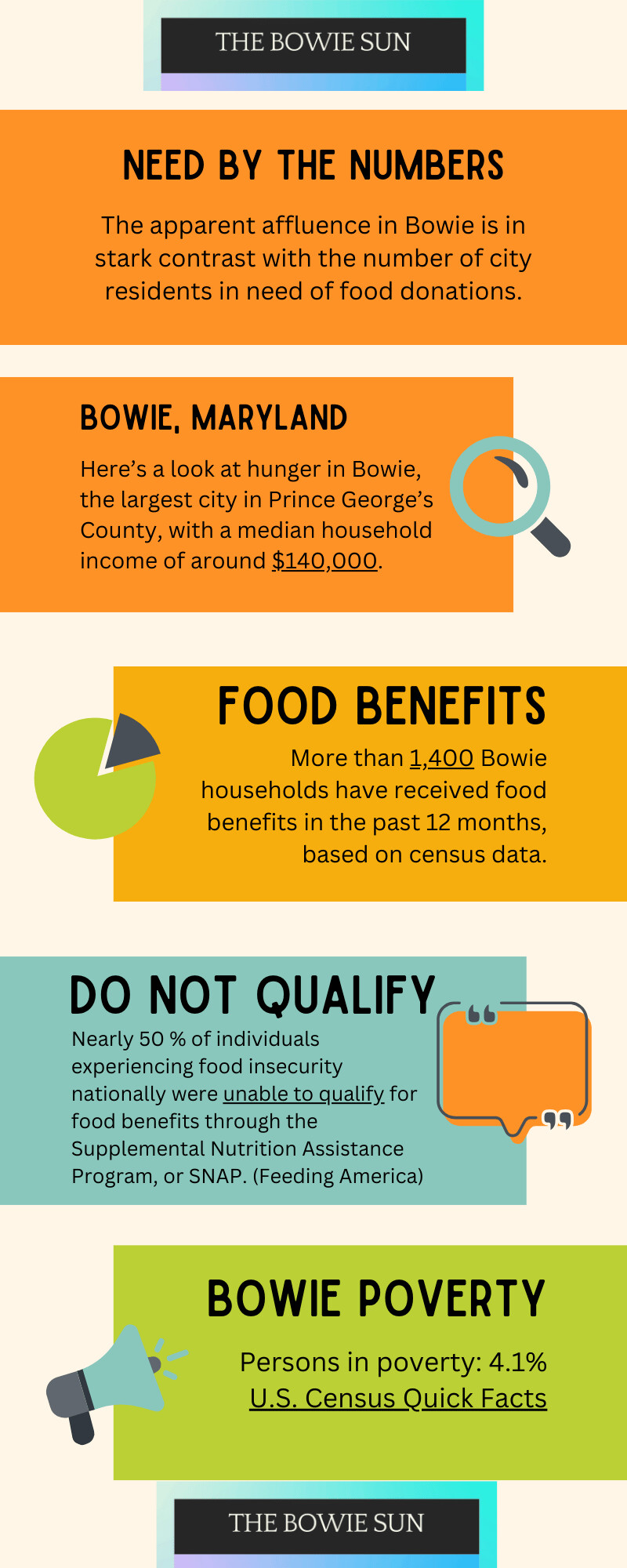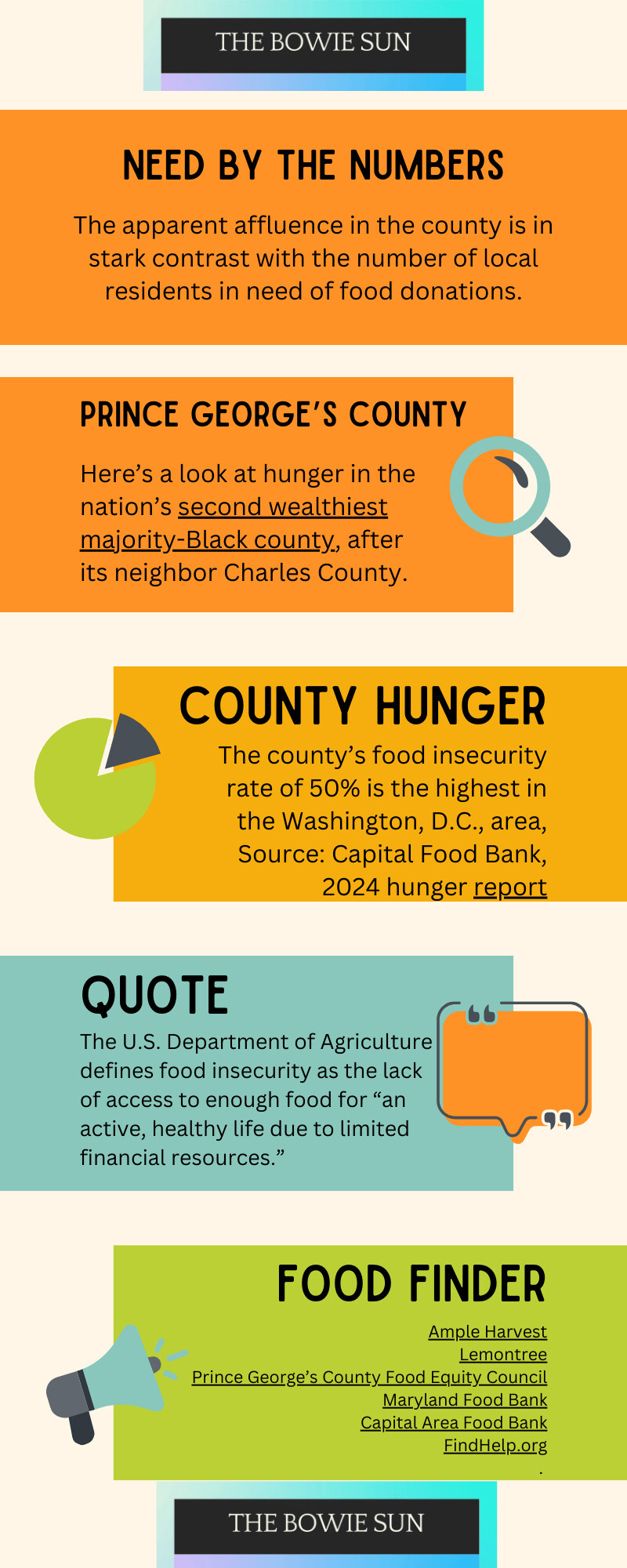Image


BOWIE, Md. – Bowie charities are working to keep up with the growing need for food and other aid for area residents hit by high costs.
Rising food costs and the rollback of pandemic-era assistance have strained local residents, revealing pockets of need in an otherwise prosperous city.
Seniors living on fixed incomes—such as pensions or Social Security—often struggle to keep up with rising grocery and medical costs, said Todd Turner, a former Prince George’s County Council member and past chair of the county’s Food Security Task Force.
“The cost of food and the cost of inflation’s impact on food is making it even more severe for those who have limited incomes,” said Turner, a former Bowie City Councilman. He now leads the county’s ethics and accountability office.
The rollback of COVID-era assistance programs, he said, have contributed to the uptick in demand for food assistance in Bowie and across Prince George’s County.
“The issue for me is not so much access as affordability… people being able to afford to buy fresh fruit, fresh vegetables and other healthier food options for them,” Turner said.
The task force made several recommendations in 2021, including incentives for healthy food retailers and improved transportation to these retailers. The report also called for a food emergency plan, land for agriculture and resources for food assistance providers.
Spending on food pantries, farmers markets and a food equity and insecurity task force would continue under the county’s approved budget for fiscal year 2025. But the current social services budget decreased by $130,000 compared to fiscal 2024.
St. Matthew’s Church in Bowie established the Little Free Pantry just before the COVID-19 pandemic to address growing food insecurity in the community, said Marian Eisinger, the church’s mission lead. Initially operating on a moderate scale where residents could donate and take items as needed, the pantry has since grown to serve a diverse range of visitors, including seniors on fixed incomes, families, and working adults struggling with rising costs, she said.
“When we started it, we weren’t really stocking it that much.” Then the pandemic hit, and “we realized that wasn’t going to be good enough, and we started seven days a week making sure that our pantry was stocked,” Eisinger said.
Particularly hard hit by the end of pandemic benefits were food-insecure households slightly above the income level for government assistance, she said.
Eisinger, a Bowie resident, said that her daughter, despite working full-time, moved back home to avoid living paycheck to paycheck. Rising housing and living costs can push families into similar situations, she said.
Financially squeezed college students and faculty at Bowie State University also have experienced food and housing challenges.
Tamesha Woods, the coordinator of the Nutrition Lounge at Bowie State University, said food insecurity and homelessness are a major issue on campus, affecting students, faculty and staff. The historically Black public university has sought emergency funds for housing and donors for its Nutrition Lounge, which offers food assistance and connects students with community services, she said.
“We try to partner with the Cooking Club and Green Ambassadors to promote cost-effective food options and let students know about local farmers markets or discounts for college students,” Woods said. Campus events like the Hunger and Homelessness Awareness Drive provide students with food just before Thanksgiving and hats and scarves for the colder months, she said.
“We have people that come in with flip flops in the winter,” said Mila Stanley, coordinator of House on the Hill, a small community outreach program operated by Sacred Heart Church in Bowie. The program provides clothes, linen, toys and kitchen supplies. But many visitors come in seeking baby formula and diapers, items that the program does not offer, Stanley said.
Due to the city’s growth, Stanley said there has been a noticeable uptick over the past year in the number of Bowie residents served, who make up 8-10 percent of the program’s visitors. The majority of the visitors come from across the county, from Glenn Dale to Mount Rainier, many of them Spanish speakers assisted by the program’s bilingual volunteers.
“People are trying to make ends meet with what little they have, and it’s not enough,” Stanley said.
According to the newsletter of the Bowie Interfaith Pantry and Emergency Fund, the support it provides to Bowie area residents increased in October compared to the same month in the previous year, from 24% to 29%. Though, the number of households served and client visits decreased during October, compared to the same period last year, the data showed.
Bowie, the largest city in Prince George’s County, has a median household income of around $140,000. Still, approximately 1,950 adults in Bowie are food insecure, according to the Capital Area Food Bank.
A city official was not immediately available to comment on food assistance in Bowie.


Princess Tatsi is a student reporter for the University of Maryland Local News Network.
Bowie Sun Editor Catherine Hollingsworth contributed visual data to this report.